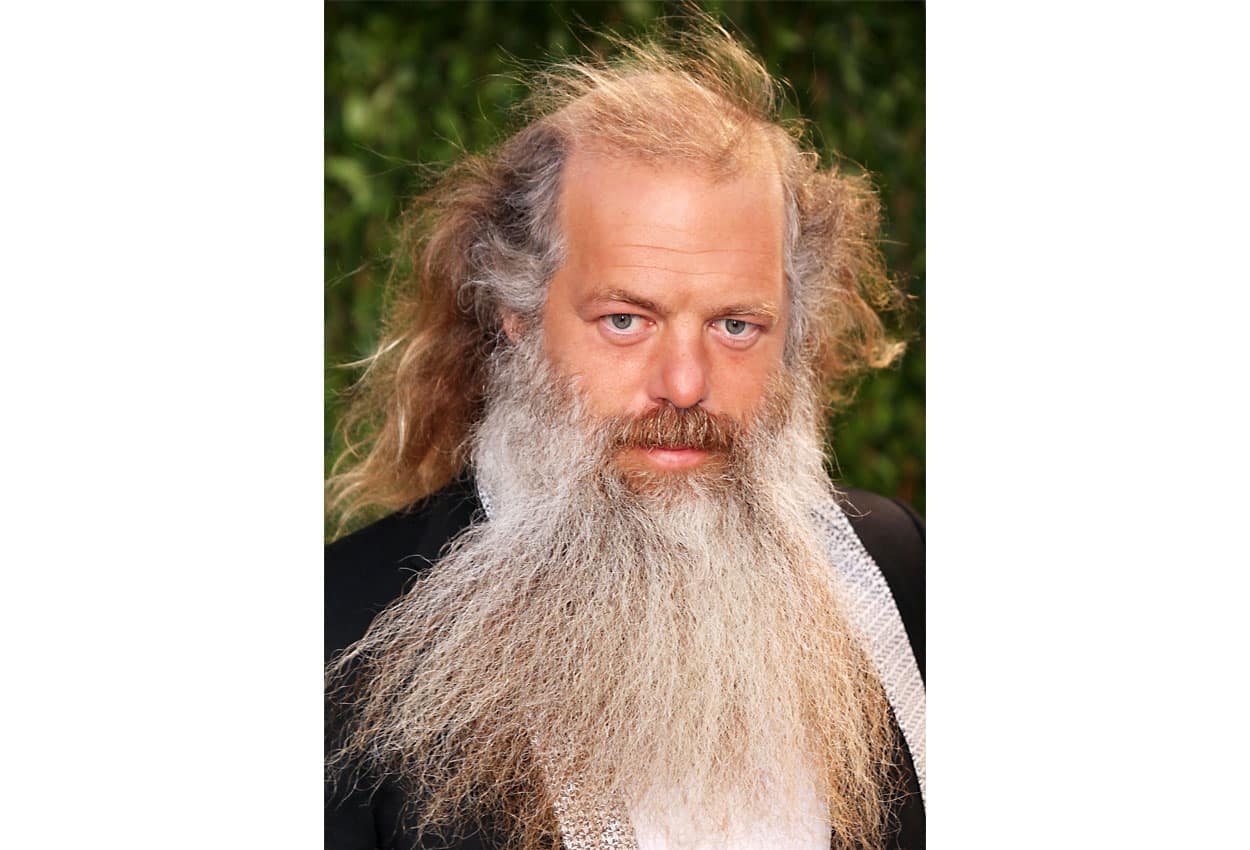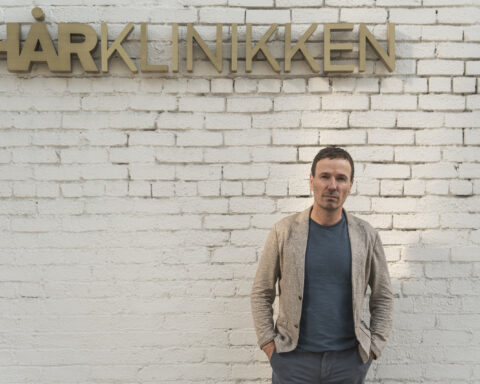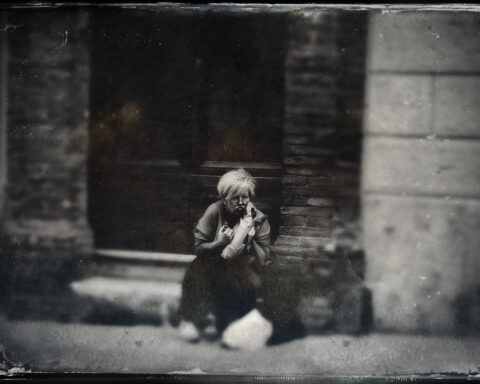I used to waste a lot of time scrolling through my phone, studying the work of writers and artists I admired, and searching for the answers that would ignite my creative work.
It never led to much.
The more I emulated others, the only thing I achieved was uninspired, derivative work. Sometimes it got attention, but deep down I was never happy.
It’s like my heart kept whispering to turn inward, where my authentic voice was aching for release and expression. But then I’d doubt myself and go on aping the work of others.
A lot of creatives struggle with this.
Even when we finally produce our own unique work, we sometimes hold back. Doubt, fear, and self-consciousness prevent us from going deep, where the best of our creative magic awaits.
If all of this sound familiar, you might take solace.
Even the most successful and famous artists are not immune to this struggle. Consider the late country music icon Johny Cash. He reached a point later in his career where he felt like the world had passed him by, and his music was no longer relevant.
Until Rick Rubin came into his life.
You build on failure
Rick Rubin is an American record producer who co-founded the widely successful Def Jam Recordings.
Years ago, Rubin wandered into a dinner theater in Orange County where Johnny Cash happened to be performing. It seemed like Cash had fallen in popularity from his previous stature as a legend in country music. Rubin felt like the world had passed Johnny Cash by, and he decided to work with him.
“You build on failure. You use it as a stepping stone. Close the door on the past. You don’t try to forget the mistakes, but you don’t dwell on it. You don’t let it have any of your energy, or any of your time, or any of your space.”—Johnny Cash
In the music industry, Rubin is a highly sought producer because he gets results with a somewhat unorthodox approach. He has worked with every manner of artists, from rappers like LL Cool J and Public Enemy to singers like Adele and Tom Petty.
When Rubin began working with Johnny Cash, he selected a Nine Inch Nails song titled ‘Hurt’ for Cash to cover. But Rubin stripped down the song to its bare essentials, and the result was a haunting, brutally honest recording.
The subsequent music video is devastatingly emotional, as we watch an aging Johnny Cash in his dilapidated home, whilst images of his youth flash across the screen.
Working with Rick Rubin reinvigorated Cash’s career, and they went on to produce more recordings together.
In a CBS 60 Minutes episode, Rubin told host Anderson Cooper that he “barely” plays any musical instruments, “doesn’t know” how to work a soundboard, has “no technical ability” and doesn’t “know nothing about music.”
“Well, you must know something,” Cooper asks since artists from all over vie to work with Rubin.
Rubin replied, “I know what I like and what I don’t like. I’m decisive about what I like and what I don’t like.” He went on to explain, “The confidence that I have in my taste, and my ability to express what I feel, has proven helpful for artists.”
So where does Rubin’s seemingly magical ability come from?
We lead our lives so poorly
In the 60 Minutes segment, we watch as Rubin works with recording artists. He’s into meditation, and refers to himself as a “reducer” rather than a “producer.”
As Rubin listens to the music, he closes his eyes and sways back and forth. Sometimes he lies down, and artists wonder if he’s listening or sleeping.
Anderson Cooper toured Rubin’s California studio, which contain minimalist rooms stripped of any distractions like gold albums or awards. Rubin views such trappings of success as distractions.
“We lead our lives so poorly because we arrive in the present always unprepared, incapable, and too distracted for everything.”—Rainer Maria Rilke, Letters on Life
He tells Anderson Cooper about the time Tom Petty sent him recordings of new songs, none of which Rubin liked. But there was a brief guitar riff in the recordings, between two songs, that resonated with Rubin’s zen-like tastes.
That throw-away guitar riff would become the opening and recurring music to Tom Petty’s famous song ‘Mary Jane’s Last Dance.’
At the heart of Rubin’s success is a deep focus on feelings. Tapping into your feelings and leaning into yourself.
Ever notice how much better your work is when you stay true to what you’re feeling?
The audience comes last
Early in Rubin’s career, he was attracted to hip-hop music, but the recordings didn’t sound like the raw, authentic hip-hop he heard in the clubs. They lacked the DJ record scratching and stripped-down energy.
So Rubin began recording hip-hop to reflect what he liked about the simpler, raw, club sounds.
Rubin once heard a jingle on a college radio show and tracked down the rapper who wrote it, Chuck D, and convinced him to sign with his music label, Def Jam Recordings. That’s how the Grammy award-winning group Public Enemy was birthed.
Rubin went on to land a seven-figure distribution deal with Columbia Records, and eventually sold Def Jam Recordings in 1988. Now he works out of his spartan home studio in California.
Rubin told Anderson Cooper that “I like the idea of getting the point across with the least amount of information possible.” He focuses on what is necessary, the essence of the music.
Rubin listens to how the music makes him feel, not the individual instruments and vocals.
Rubin isn’t trying to create music for clicks or for what he thinks the market wants. He doesn’t chase fads or worry about more gold records.
He told Anderson Cooper something deeply profound: “The audience comes last.”
“How can that be?” Anderson Cooper asks.
“Well, the audience doesn’t know what they want. The audience only knows what’s come before,” Rubin replies.
Rubin’s success comes from his focus on reductionism, stripping away all the superfluous stuff to get at the underlying heart of the music. He relies on how the music makes him feel. He doesn’t worry about what others might think.
He goes with his gut.
Dare to be ourselves
How about you?
Are you tired of copying everyone else? Are you ready to dive deep and listen to your creative heartstrings?
Doing creative work that truly resonates with your soul sometimes takes courage, and maybe some folks won’t understand or initially appreciate what you’re trying to say.
Do it anyway.
“We have to dare to be ourselves, however frightening or strange that self may prove to be.”—May Sarton
Be decisive like Rick Rubin. Close your eyes and pay closer attention to what your work is trying to say to you. Let go of your ego and the chattering social media darlings. Reach deep inside and find the work that’s screaming for release.
Dare to be yourself and show the world your art. The work that’s uniquely you. One of a kind.
Embrace the heartfelt purity of your work, and the world just might become your oyster.











